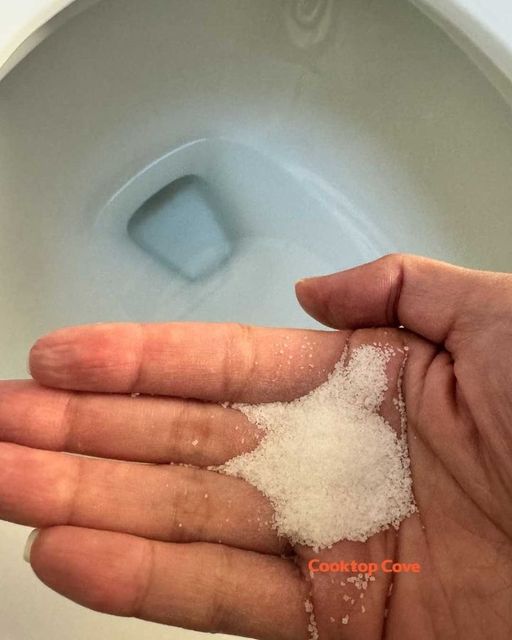ADVERTISEMENT
It is possible to increase the lifetime of your toilet by using salt since it helps avoid blockages and reduces the accumulation of minerals. Keeping your toilet in good condition reduces the likelihood that it will experience wear and tear, which might save you money in the long run by preventing the need for expensive repairs or replacements.
Salt: A Guide to Using It in Your Toilet
The cleaning of your toilet with salt is a simple and basic method. This is how you can do it:
You should add one cup of salt to the bowl of the toilet.
If you want the benefits to be more dramatic, you may keep the salt out for at least fifteen minutes, but you can even leave it out overnight.
Once you have waited, use a toilet brush to scour the bowl carefully, paying particular attention to any stains or deposits that may have occurred.
Last but not least, flush the toilet to remove the salt and particles from the water.
This procedure should be repeated every few weeks in order to maintain the best possible condition of your toilet and to avoid smells and obstructions.
The Reasons Why Plumbers Might Not Explain This Trick
If you are a plumber, you may be wondering why they don't talk about this salt method publicly. There are a number of possible explanations for their lack of response:
Assurance of Employment: Sharing do-it-yourself solutions such as this one might possibly lessen the amount of work that plumbers have to do. Plumbers earn their career by resolving plumbing issues.
Complicated Problems: Despite the fact that salt may be helpful in removing small blockages and performing maintenance, it might not be an answer to more serious plumbing problems. When it comes to resolving complicated issues that call for the skills of professionals, plumbers are very necessary.
Plumbers may be reluctant to recommend do-it-yourself solutions because they want to avoid the possibility of being held liable in the event that anything goes wrong during the procedure.
ADVERTISEMENT
